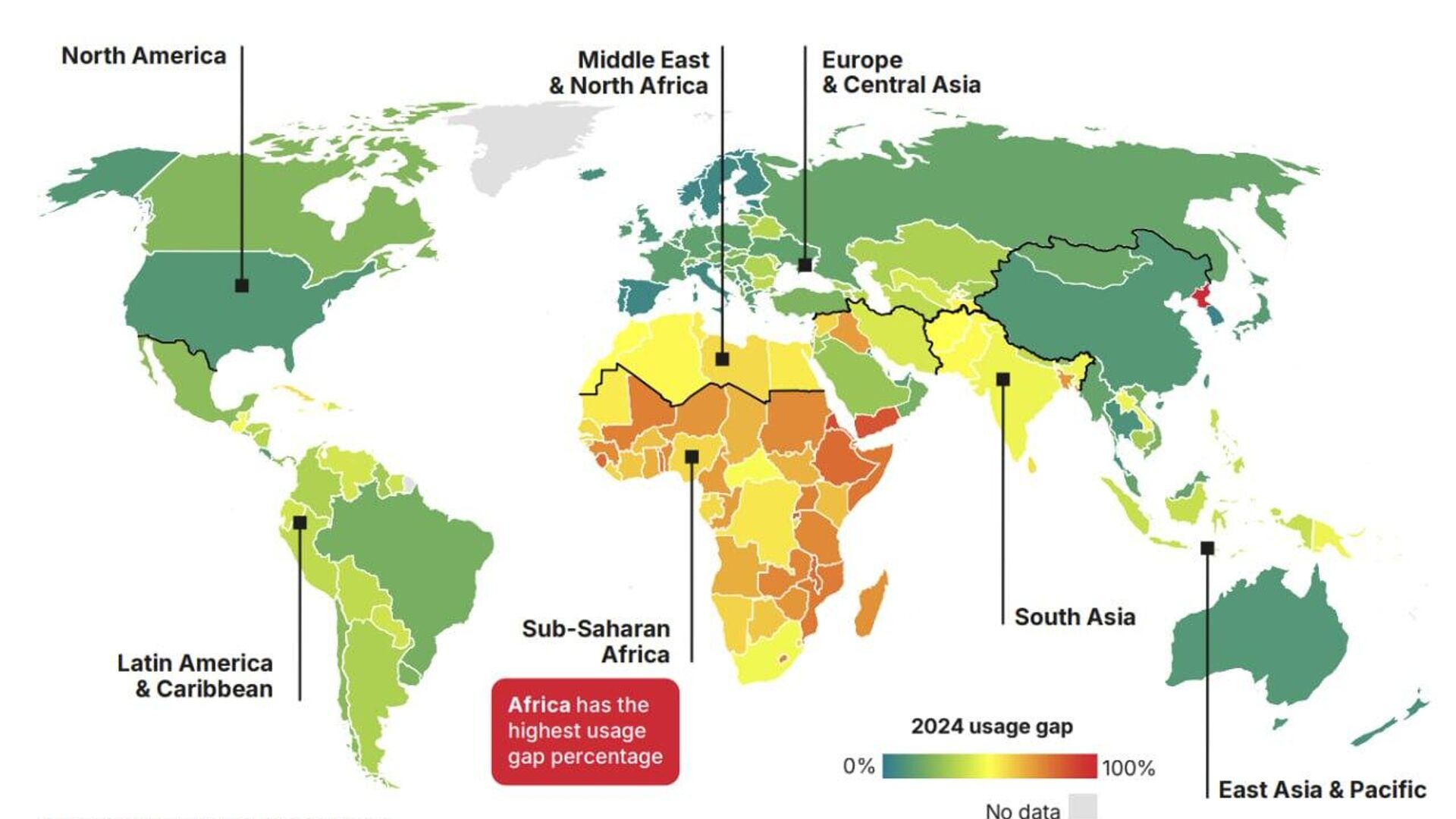Africa’s Mobile Internet Divide: Progress, But Deep Gaps Remain, Report Shows

Africa’s Mobile Internet Divide: Progress, But Deep Gaps Remain, Report Shows
The GSMA State of Mobile Internet Connectivity 2025 Report paints a mixed picture for Africa. While connectivity is improving, Sub-Saharan Africa and North Africa remain at the sharp end of the global digital divide.
“Sub-Saharan Africa remains the region with the lowest mobile internet usage, with only 25% of the population using it and the largest coverage gap at 10%.”
By contrast, over three-quarters of people in North America and Europe use mobile internet.
Device access is uneven. Globally, 16% of subscribers rely on 3G or feature phones, but the figure rises to 60% in Sub-Saharan Africa and 30% in North Africa. 3G remains dominant in Sub-Saharan Africa, with South Africa the only country planning to retire both 2G and 3G.
Coverage is expanding, yet the hardest-to-reach populations remain offline. In 2024, Sub-Saharan Africa accounted for 75% of the global reduction in the coverage gap, but it still has the largest share of people without access.
Inequalities are stark: rural adults in Sub-Saharan Africa are 48% less likely than urban peers to use mobile internet, and the gap is 29% in North Africa.
Gender disparities persist, with women in Sub-Saharan Africa 29% less likely than men to be online.
Affordability remains a major barrier. In Sub-Saharan Africa, an entry-level internet-enabled device costs 87% of monthly income for the poorest 20%. Women in North Africa and other low- and middle-income regions face additional challenges due to wage and employment gaps.
Subscribe to @sputnik_africa
